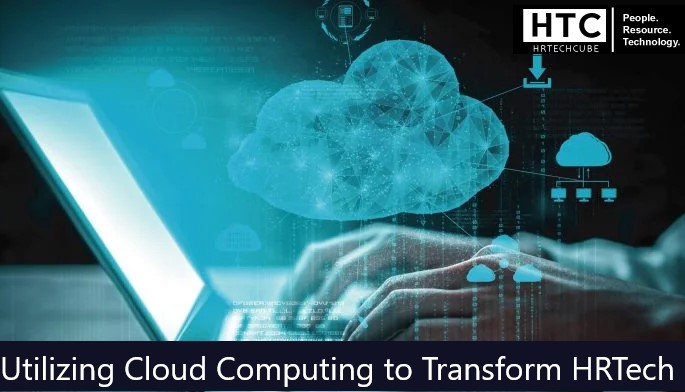The emergence of cloud computing has revolutionized many sectors, and the human resources (HR) field is no exception. HRTech, which integrates technology into human resource management, is undergoing a transformation due to the vast capabilities of cloud computing. By leveraging cloud-based platforms, HR departments are streamlining operations, improving accessibility, and reducing costs, all while enhancing the employee experience. In this article, we will explore how utilizing cloud computing is reshaping HRTech and its impact on businesses.
What is Cloud Computing in HRTech?
Cloud computing refers to the delivery of computing services—such as servers, storage, databases, networking, software, and analytics—over the internet, known as "the cloud." In HRTech, cloud-based solutions are used to manage everything from employee data to payroll and recruitment processes. These solutions offer HR departments flexible, scalable, and cost-effective platforms to manage and analyze workforce data.
The Benefits of Cloud Computing for HR
Cloud computing provides several advantages to HR departments, enabling them to work more efficiently and deliver better services to employees. Here are some key benefits:
-
Cost-Effectiveness: Cloud platforms significantly reduce the need for expensive on-premise infrastructure, such as servers and IT staff. Instead, businesses pay for what they use, making cloud-based HR solutions more affordable, especially for small and medium-sized enterprises.
-
Increased Efficiency and Productivity: With cloud solutions, HR teams can automate routine tasks like payroll processing, leave management, and performance evaluations, allowing them to focus on more strategic initiatives that add value to the business.
-
Remote Accessibility: Cloud-based HR systems provide employees and HR staff with easy access to HR data from anywhere. This is especially valuable in the current remote and hybrid work environment, where flexibility is key.
-
Enhanced Collaboration: Cloud computing enables better collaboration among HR teams, managers, and employees by providing a unified platform for communication and document sharing.
-
Data Security and Backup: Cloud solutions typically offer high-level security measures, including encryption and automatic backups, ensuring that sensitive HR data is protected and can be easily restored in case of a disaster.
Key Features of Cloud-Based HR Solutions
Cloud-based HR systems come with a wide range of features designed to streamline and enhance HR processes:
-
Employee Data Management: Centralized storage of employee records, from onboarding to retirement, with easy access for authorized personnel.
-
Recruitment and Onboarding: Cloud solutions allow HR departments to manage recruitment workflows efficiently, from job posting to candidate selection and onboarding, with integrated tools for interview scheduling and document management.
-
Performance Management: These platforms offer tools for tracking employee performance, setting goals, conducting reviews, and providing feedback in real time.
-
Learning and Development: Cloud-based HR systems include learning management systems (LMS) that enable businesses to track and manage employee training programs and skill development.
-
Payroll and Benefits Management: Cloud solutions automate payroll processes, ensuring that employees are paid accurately and on time, and can manage benefits enrollment with ease.
Challenges and Considerations
While cloud computing offers a host of benefits, there are also challenges to consider when adopting cloud-based HR solutions:
-
Data Privacy and Compliance: With sensitive employee data stored in the cloud, businesses must ensure they comply with local and international data protection regulations, such as GDPR or CCPA. Choosing a cloud provider with robust security features and compliance certifications is essential.
-
Integration with Existing Systems: Migrating from traditional HR systems to a cloud-based solution may require integration with legacy systems, which can be complex and time-consuming.
-
User Training and Adoption: HR staff and employees may need training to fully leverage the cloud-based HR platform. Proper onboarding and support are crucial to ensure smooth adoption.
-
Dependence on Internet Connectivity: Cloud-based systems require a stable internet connection. Businesses operating in areas with unreliable internet access may face disruptions in service.
Future of Cloud Computing in HRTech
The future of cloud computing in HRTech looks promising. As more businesses move toward digital transformation, the integration of artificial intelligence (AI), machine learning, and data analytics within cloud-based HR systems will become increasingly common. These technologies will enable HR departments to gain deeper insights into employee performance, identify trends, and make data-driven decisions.
Moreover, the continued development of employee self-service portals and mobile applications will make HR processes even more accessible and user-friendly. The flexibility and scalability of cloud platforms will allow businesses to adapt quickly to changing workforce needs and technology advancements.
For More Info: https://hrtechcube.com/utilizing-cloud-computing-to-transform-hrtech/
Conclusion
Utilizing cloud computing to transform HRTech offers organizations a range of benefits, from cost savings and increased efficiency to enhanced data security and accessibility. By adopting cloud-based HR solutions, businesses can streamline their HR processes, improve employee satisfaction, and stay ahead of the curve in an ever-evolving business landscape.




